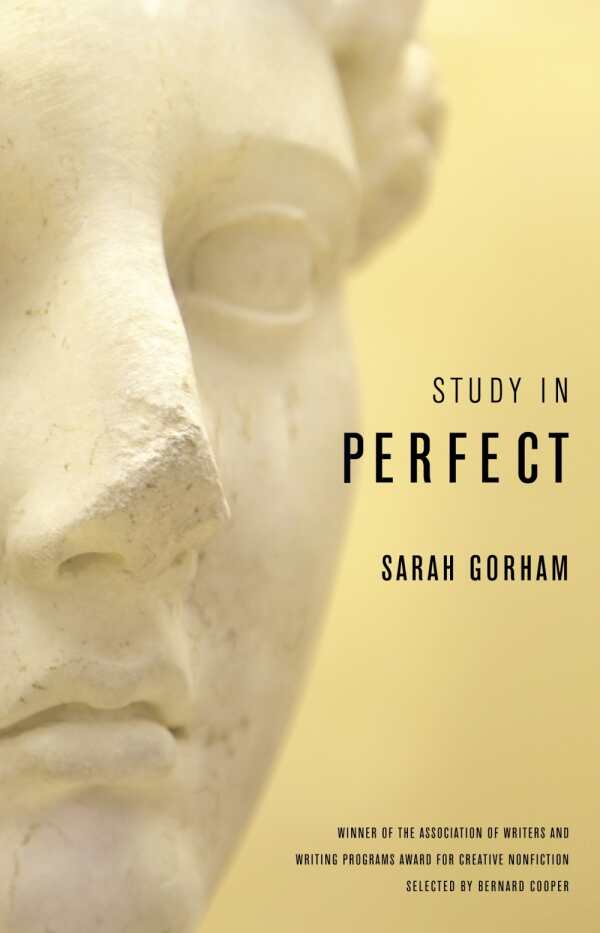
Study in Perfect
- 2014 INDIES Winner
- Silver, Essays (Adult Nonfiction)
Gorham’s insights into perfection expand and clarify vision—for individuals’ lives and the world at large.
There are questions that plague both mind and heart: What does “perfect” really mean? How is it manifested or contorted—or negated—in the complexities of daily life? What makes a perfect life? Sarah Gorham doesn’t answer these questions, of course, but her explorations resonate with these questions in a way that soothes and satiates. Study in Perfect is a well-curated essay collection that examines the breadth and depth of the ideal of perfection.
The book has twenty-two essays of varying lengths. They take many forms, from narrative exploration to the poetic deconstruction of words. No matter the essay, Gorham’s command of the craft is evident: the descriptions are aptly concise, the reasoning clear, the pace well modulated. There is music and truth in her turns of phrase from the very first page, the similes and metaphors in particular: “A flood’s rushing water levitates picnic tables and boats like rubber bath toys. … Even the silvery boat barn moans as it tears from its foundation and pulls away.”
The essays explore the multifaceted nature of perfection, dark and light, classical and modern, cultural and personal, ideological and practical. The book thrives on juxtaposition, placing alcoholism alongside children’s books, and bustling children alongside soul-deep serenity. Gorham is clearly well read, introspective, and wholly unpretentious; she references everything from Latin roots and Greek myth to Lewis Carroll, Hemingway, and Dr. Seuss, to motherhood and family vacations. She shares generously from her physical life and her inner life.
Study in Perfect offers a literary treatment of a popular concept in the self-help realm. It will appeal to those who are drawn to those very self-help books but find them too prescriptive. Like those books, though, this work shuns the guilt and judgment that spring so easily from perfectionism; the ultimate message is one of hope, acceptance, and inherent beauty, even in deep pain. Women in particular will identify with Gorham’s view of family and mothering—but these concepts aren’t so central to the heart of the book that women without children will feel disconnected.
Every detail has been well attended to, from the project level to the sentence level. The cover is serene and appealing; it echoes perfectly the calm, reflective tone of the book.
Reviewed by
Melissa Wuske
Disclosure: This article is not an endorsement, but a review. The publisher of this book provided free copies of the book to have their book reviewed by a professional reviewer. No fee was paid by the publisher for this review. Foreword Reviews only recommends books that we love. Foreword Magazine, Inc. is disclosing this in accordance with the Federal Trade Commission’s 16 CFR, Part 255.
